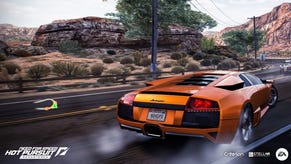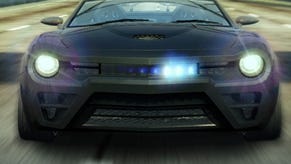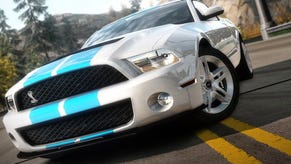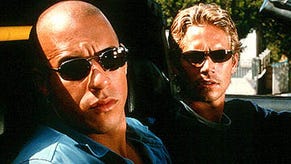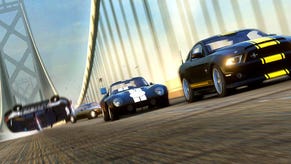Games of 2010: Need for Speed: Hot Pursuit
Cops and slobbers.
Need for Speed is the Britney Spears of video game brands, a cipher to front whichever hot producer or fashionable trend its owner, EA, wants to hand creative duties to on any given year. As a result, its games may provide a consistent financial yield, but they are also the hardest to pick out from a line-up, flitting from arcade slang street-racer one year to straight-talking sim the next. Who is Need for Speed? It's whoever's driving the development at any given time.
Which makes 2010's entry the most exciting racing game of the year, even if 2009's was lacklustre and if 2011's goes on to fall short of its developer's tall ambition. Most game series present the evolution of a design, the developer behind it growing strengths and diminishing weaknesses with each iteration. But this year, this brand benefitted not from the lessons of Need for Speed entries past, but from Criterion's trailblazing Burnout series, whose DNA can be found splattered over the boot and dashboard of every car within.
Burnout Paradise, the developer's previous title, succeeded in encasing the wind-scream thrills of the arcade racer in an open-world city, one friends and rivals could drop in to and out of in search of impromptu competition. It was smart and impressive but nevertheless a little unwieldy, the drive between missions and races bulking out what was always a series that prized tight focus and efficiency.
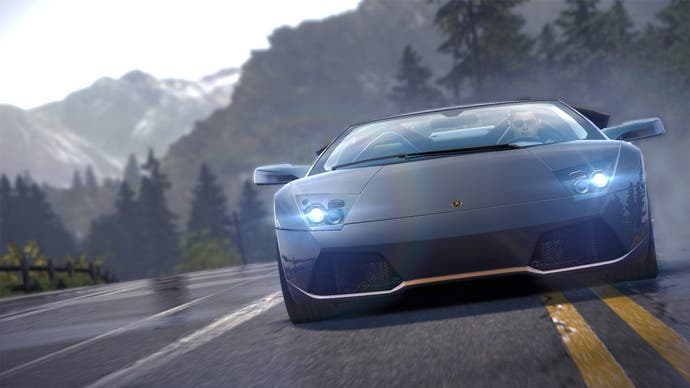
Hot Pursuit trims away the fat, even while doubling the number of 'campaigns'. There's still a sense of geography to the game world, the game hub a top-down map of an American state, but now switching between missions is done via point and click. Criterion's first sensible move was to revisit the series' first principle: cops vs. robbers. Next, the developer correctly ascertained that the thrill of being chased and the excitement of giving chase are sufficiently different to both warrant inclusion in the game, promptly splitting missions into two categories - police or criminal - and allowing you abstract freedom to jump between roles.
Next, rather than simply bundling endless point-to-point races, the developer pulls ideas from its previous titles, offering a huge variety of mission types to add variety and dodge player ennui. Straight races are interspersed with time attack runs in which every glancing bump or scrape is assigned a penalty, then followed by police chases in which bumps and scrapes are the necessary tools with which to remove your rival from the road. The variety is on a fundamental level, the way in which you play the game shifting in direction in a way that no other racing game has yet managed with such purity and clarity.
The heft of the cars on the road is more distinguished than in any Burnout game before it, while the conveyor belt unlocks of licensed cars grounds in an exciting kind of reality, like Gran Turismo had a head-on collision with Ridge Racer and the impact big-banged a new sort of existence into being in which a Porsche can turbo into a hairpin before skidding around the laws of physics.
All of this would make for one of the exciting racing games of the year, but Autolog, the game's bespoke social network overlay, elevates Hot Pursuit to one of the most exciting games of the decade.
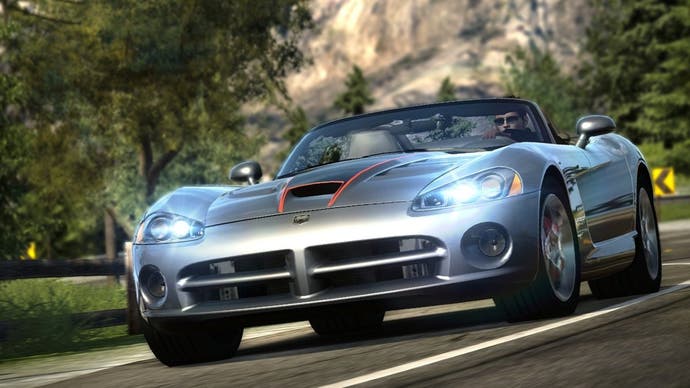
Threaded through every aspect of the experience, Autolog turns competitive racing into an asynchronous pursuit. Now, every time you boot up the game, a string of ticker headlines outline who on your friends list has overtaken your score and in which event. If someone you know betters a time on, say, 'Protect and Swerve' while you're busy playing cops and robbers online, the game reports this to you via a Breaking News headline.
It's such a bold, bald challenge that you rarely resist the competitive thrown gauntlet, instead abandoning whatever you're currently doing to dive right into the event in order to take the crown back. Autolog becomes a hothouse for micro-rivalries, which will spill out onto Twitter and Facebook as trash-talking friends underline their in-game achievements each morning.
Autolog is destined to be copied endlessly in the next few years, and EA will no doubt grow the idea for forthcoming titles. An Autolog iPhone and Android app was released a couple of weeks ago, one that notifies you each time a friend beats a time in the game, a machinegun volley of prodding taunts drawing you back in months after release, a cherry-picking of the strengths of Facebook-style asynchronous gaming. But even in this debut, Autolog arrives fully-formed, an endgame to the evolution of leaderboards that first sprouted at the dawn of videogame time, and here blossom into their ideal form.
Even ignoring some of the most enjoyable synchronous multiplayer modes in any racing game or the delicately balanced arsenal of police power-ups, for me, Autolog propels Hot Pursuit to take pole position as one of the most interesting games not only of the year, but of its generation - an extraordinary accolade for a cipher.


